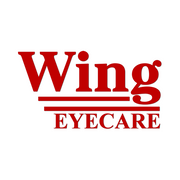A Cincinnati Eye Doctor Explains How to Prevent Snow Blindness
By Wing Eyecare

Sunglasses are a staple in the summer—they just happen to be the perfect beach accessory—but a lot of people forego them in the wintertime, even though the sun can be just as bright, if not brighter! The eyes are especially vulnerable to damage when there is snow on the ground, and those who work outside or partake in winter sports should be aware of photokeratitis. More commonly known as snow blindness, this condition is the result of a sunburn on the actual eye. Below, an eye doctor from Wing Eyecare explains how to prevent it.
Don Protective Eyewear
You should wear sunglasses year-round, regardless of the temperature. Since ultraviolet radiation can penetrate cloud cover, make sure you wear tinted eye protection even when it’s cloudy. Glare, which is light reflected off surfaces, accounts for most of the uncomfortable light we see. Polarized lenses block this glare, leaving you with more safe, comfortable vision. If you are going skiing, snowboarding, or tubing, it is also wise to invest in goggles that block 100% of the sun’s UV rays.
 Look for both glasses and goggles with wraparound frames, so sunlight cannot hit your eyes from the sides. For optimal protection on the slopes, wear goggles with polarized lenses and complete coverage on the top and bottom, as well.
Look for both glasses and goggles with wraparound frames, so sunlight cannot hit your eyes from the sides. For optimal protection on the slopes, wear goggles with polarized lenses and complete coverage on the top and bottom, as well.
Take Frequent Breaks
Just as staring at a computer screen all day can cause digital eye strain, staring at a snowy landscape for hours at a time can cause snow blindness. People with desk jobs are advised by their eye doctor to practice the 20-20-20 rule, and those who spend the day outside in the snow should do so, too. If possible, head inside or to a shaded location every 20 minutes, and let your eyes rest by staring at something dark that is 20 feet away for 20 seconds.
If you think you are suffering from snow blindness, an eye doctor from Wing Eyecare can help you achieve much-needed relief. With multiple locations in Ohio and Kentucky, they are proud to offer comprehensive and convenient eye care for patients of all ages. Visit their website to find the office nearest you, or call (888) 274-9464 to schedule an eye exam today.
About the Business
Have a question? Ask the experts!
Send your question

